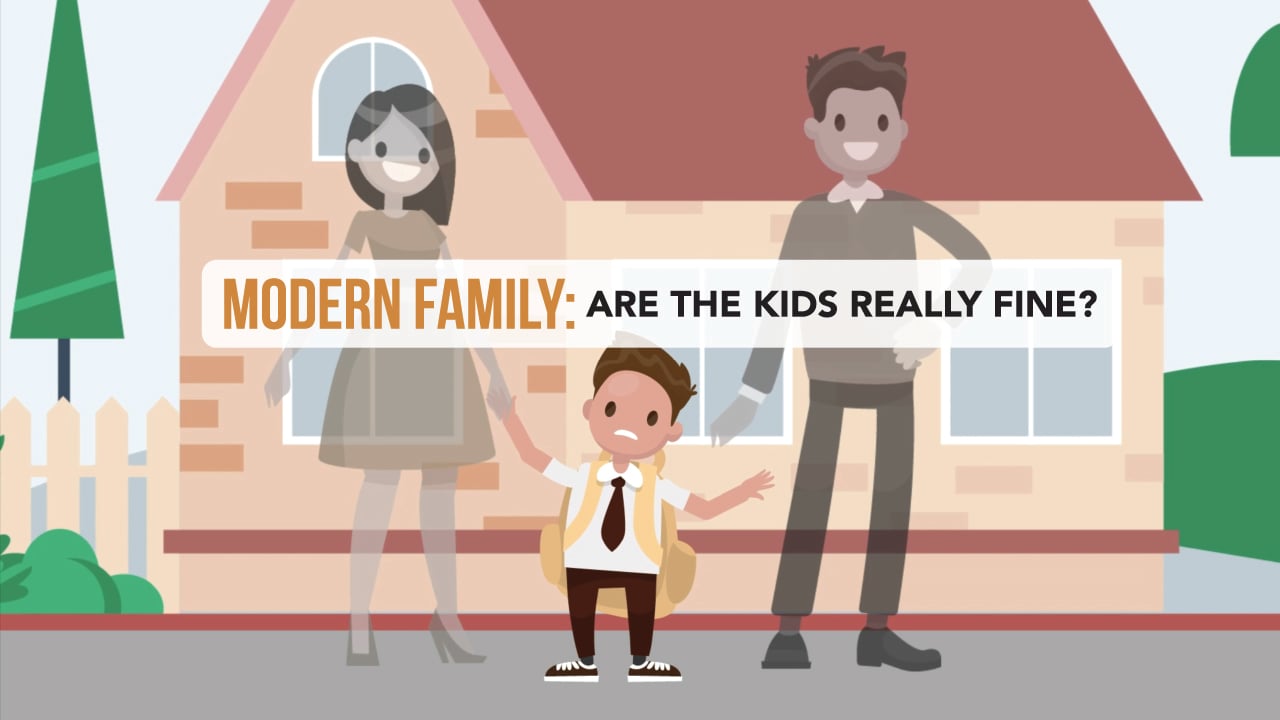You’re in a conversation about families and marriage, and someone says, “it doesn’t matter what a family looks like. After all, love makes a family.”
What would you say?
You’re in a conversation about families and marriage, and someone says, “it doesn’t matter what a family looks like. After all, love makes a family.” What would you say? When someone says “love makes a family,” what they typically mean is that when it comes marriage or parenting things like gender, marital status, and biological connections are less important than simply being loved. It’s a nice sentiment. After all, many of our closest and most important relationships are with people we aren’t related to. But is it true about families? Sociologists have been studying family structure for decades. They overwhelmingly agree that, by far, the best situation for children is being in the homes of their married, biological mother and father. That means three things. Gender matters. Biology matters. And marriage matters. First, gender matters. So different are the ways that men and women interact with children, that many sociologists say that there’s no such thing as “parenting”. There’s only “mothering” and “fathering.” From the way that they communicate, to the way that they play, to how they discipline, men and women offer distinct and complimentary benefits to children. There are heroic single parents out there, but they face very difficult challenges because the other parent is not involved. When one parent is missing, the father for example, children fall into almost predictable, negative patterns. Fathering encourages independence, mothering encourages emotional security. Men don’t mother. Women don’t father. Kids need both. Second, biology matters. Kids don’t just need adults, they need their parents. The reason screening for adoptions is so rigorous is because social workers understand that placing a child with a biological stranger is always risky. There are heroic step parents out there, but they, like single parents, face significant challenges because they are not the biological parents. In fact, on average, kids of blended families fare similarly as do kids who grow up with a single mom. Beyond concerns about safety, kids benefit psychologically from a connection to their biological identity as well, as is evident by the waves of adoptees and donor-conceived children who are increasingly turning to websites and social media to find their missing parent. Third, marriage matters. Marriage is more than “a piece of paper”. It is the single, most important dividing line between kids who thrive and those who do not. The federal study of child abuse found that children living with their cohabiting parents are more than four times more likely to be abused than their peers living with married parents. Kids living with mom and her cohabiting boyfriend? 11x more likely to be abused. In addition, children living with their unmarried parents are twice as likely to see their parents break up. The evidence is clear. Stability matters for kids and marriage seems to bring it to the lives of children in a way nothing else can. But there is more. Children with unmarried parents are 6 times more likely to demonstrate behavioral issues, 122 times more likely to be expelled from school, and 90 percent more likely to have a lower GPA. Children with unmarried parents are also twice as likely to live in poverty. Our lived experience likely tells the same story. We either greatly benefitted from the love of our mother and father, or we suffered because we missed out on one or both. Of course, the ideal is not always possible. In those cases, grandparents, adoptive parents, and single parents do their very best to give children what they need in the absence of mom or dad. So let’s not let a slogan get in the way of what’s really best for kids. When it comes to family, love matters, but when it comes to what’s best for children, that’s not all that matters. Let’s review Next time someone tells you that family structure doesn’t really matter, and love is what makes a family, remember these three things. Gender matters. Kids don’t need parents, they need a mother and father. Biology matters. Kids also do best when connected to their biological mother and father. Marriage matters. It’s not just a piece of paper. It represents security and stability for kids.
https://www.thepublicdiscourse.com/2011/04/3181/
https://thembeforeus.com/biology-matters/
https://sblog.s3.amazonaws.com/wp-content/uploads/2015/04/14- 556_Heather_Barwick_and_Katy_Faust.pdf
 Read More
Read More




